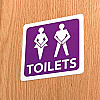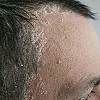Therapy beats drugs for chronic insomnia
News Briefs

Image: yanyong/iStock
The American College of Physicians (ACP) is urging doctors to prescribe a combination of talk therapy and sleep habit changes known as cognitive behavioral therapy for insomnia (CBT-I) as a first line of defense for chronic insomnia. The recommendation is in the ACP's new guideline on managing chronic insomnia, published May 2, 2016, in Annals of Internal Medicine. CBT-I has several components, including cognitive behavioral therapy, which redirects anxiety-ridden thoughts about sleep to more positive thoughts about sleep; a reduction in stimuli before bedtime, such as looking at computer and TV screens; relaxation techniques; and an improved sleep environment that's cool and dark. The ACP reports that CBT-I is likely to be safer than sleep medications, which may be associated with side effects such as driving impairment and worsening depression. If CBT-I doesn't help improve sleep, the ACP urges doctors to talk about the risks and benefits of drug therapy before prescribing it.
"CBT-I requires multiple sessions with trained therapists, so it requires more time commitment, but avoids the potential complications of chronic medications," says sleep expert Dr. Lawrence Epstein, an instructor in medicine at Harvard Medical School. He says CBT-I also helps people with obstructive sleep apnea adjust to continuous positive airway pressure, a treatment that keeps airways open.
Disclaimer:
As a service to our readers, Harvard Health Publishing provides access to our library of archived content. Please note the date of last review or update on all articles.
No content on this site, regardless of date, should ever be used as a substitute for direct medical advice from your doctor or other qualified clinician.















